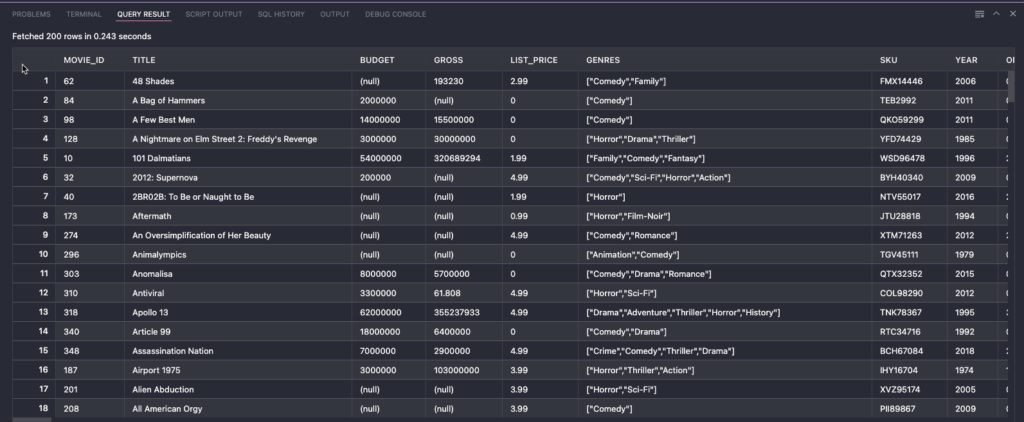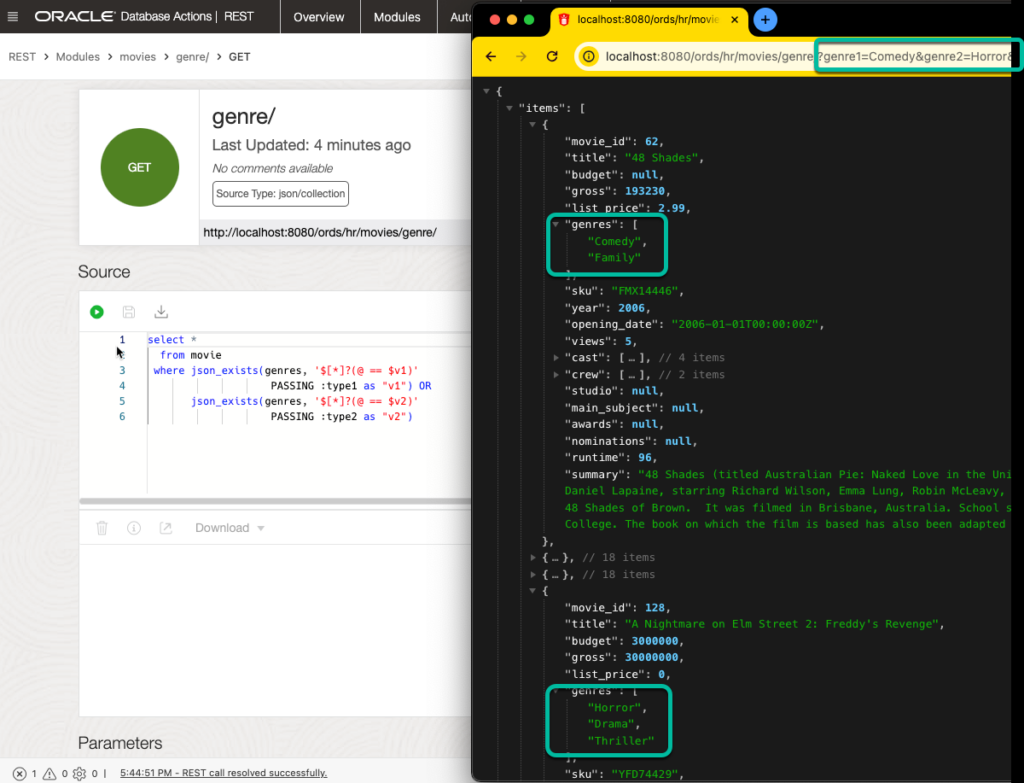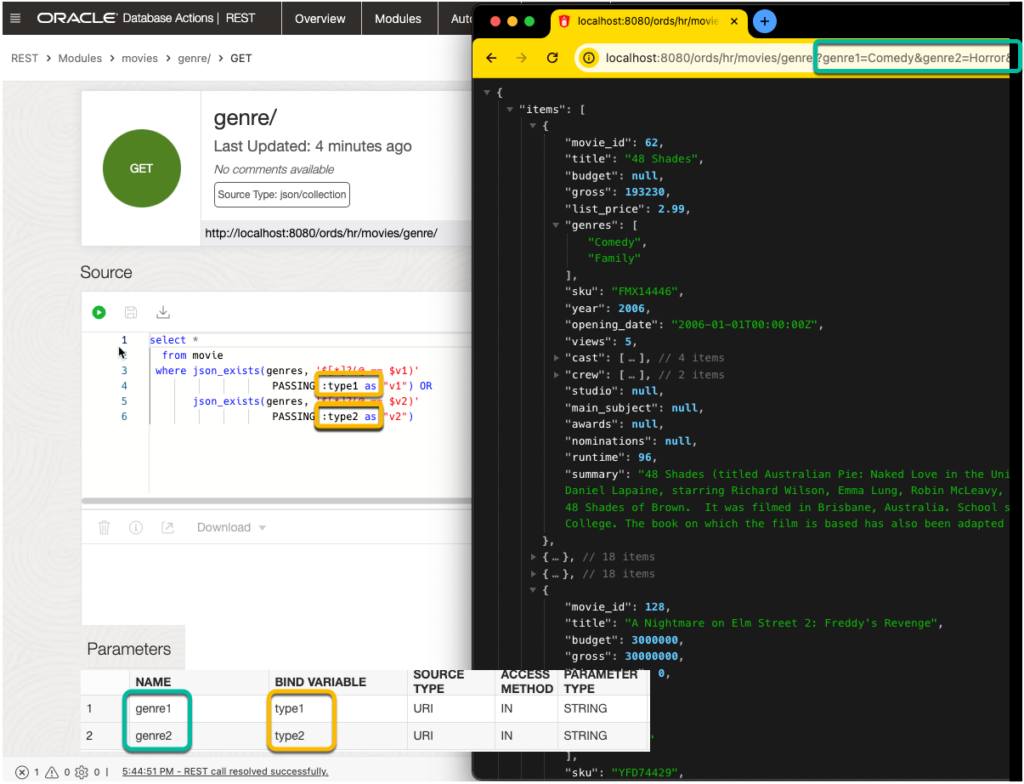This is a follow-up to this post, “Retrieve DISTINCT list of values from JSON arrays via SQL” – while it’s not mandatory you read that first, I highly recommend it.
TL;DR summary
I have a table called, ‘MOVIE,’ and in that table are one or more JSON columns.

The ‘raw’ data looks like this –

I want a REST API to search my movies, by GENRE
And actually, I want to be able to pass 2 GENRES, and find those that match, BOTH.
So for example, what movies are BOTH a ‘Horror,’ AND a ‘Comedy.’
The SQL to do this isn’t very hard.
select *
from movie
where json_exists(genres, '$[*]?(@ == "Horror")');This is for a single GENRE, and it’s basically saying, are there ANY positions in the array that match on the string, “Horror”

Pivoting that SQL to feed a REST API
We need:
- module and template, URI : movies/genre/:type
- handler: GET
- SQL: see above
So we end up with this :

This won’t work. We can’t use SQL binds inside of a string.
So what do we do?
The JSON Developer’s Guide discussion on the JSON_EXISTS function makes the answer very clear, and easy to implement!
“The optional filter expression of a SQL/JSON path expression used with json_exists can refer to SQL/JSON variables, whose values are passed from SQL by binding them with the PASSING clause”
It turns out that’s exactly what we need – to pass a SQL variable, via a BIND.
So let’s look at our handler, again, using the PASSING clause.
select *
from movie
where json_exists(genres, '$[*]?(@ == $v1)' -- $v1 is arbitrary
PASSING :type as "v1") -- v1 is derived from '$v1'And let’s plug that into the REST handler, and try it out!

It works!
Ok, now let’s try matching two tags!
Normally I would submit two tags with a URI structure on the template like:
movies/genre/:type1/:type2But, there’s another way, and since I’ve demonstrated the bind notation off the URI so many times, I’ll instead demonstrate how to do this with URI parameters.
URI template definition: movies/
GET request example: movies/?type1=Horror&type2=ComedyHere’s the handler code:
select *
from movie
where json_exists(genres, '$[*]?(@ == $v1)'
PASSING :type1 as "v1") AND
json_exists(genres, '$[*]?(@ == $v2)'
PASSING :type2 as "v2")And here’s what that looks like defined, and running:

But wait, we also need to define two parameters
I’m going to tell the ORDS REST API handler, that it can expect a couple of URL parameters on the URL, and that I want to reference them via specific bind variables in the handler SQL block.
It is NOT an accident that you see ‘:type1’ in the PASSING clause of the SQL function, and also a ‘genre1’ parameter name in the URL.

The way I’ve coded this, those parameters are NOT optional, as in, if i only pass in 1 genre, I get zero hits back.

I don’t consider these predictable, or friendly APIs. It would be better if going to movies/genre/ brought back EVERYTHING, or if I only passed 1 genre, it would match on just the 1 instead of the 1 genre and a NULL.
There’s nothing NEW here
Our JSON technology in the database debuted in 12c (2012), and using ORDS REST APIs with query parameters (or :binds) has been around since the very beginning.
But, I wanted to bring the two topics, together.
I like SciFi and Horror, but my wife likes…








